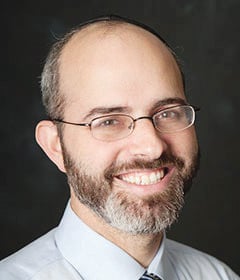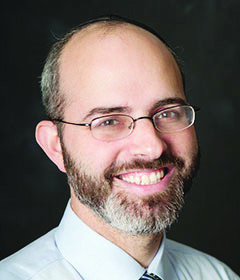 May these words of Torah serve as a merit le’iluy nishmat Menachem Mendel ben Harav Yoel David Balk, a”h.
May these words of Torah serve as a merit le’iluy nishmat Menachem Mendel ben Harav Yoel David Balk, a”h.
When a Child Damages
Our daf teaches that dealing with children and damage is difficult. If one damages a child he must pay. However, when a child damages others there is no liability; neither the child nor his father need pay. Is this a license for children to damage the property of others?
Rambam (Hilchot Geneivah 1:10) writes, “It is correct for a court to hit the child who steals, as much as the child can withstand, so as to train the young not to steal. The court should do the same to a child who damages.” The court should train the young not to cause damage to others. There is no license to damage. Our daf merely teaches a lesson about financial liability if damage unfortunately occurred.
Rav Yehuda Assad (Shu”t Yehuda Ya’aleh Siman 164) raised a powerful question. It is understandable why a child need not pay for his acts of damage. Children do not have responsible intelligence. They are immature. They also do not understand the import of their actions. However, why should the father not have to pay? Just as a farmer must pay for the damage done by his ox, for he should have watched it, the father should have to pay for the damage done by his son for he should have watched his son.
He answers that logic would have dictated an obligation of payment on the father. However, there are lessons from the verses of Vayikra (24:19,21) that when a person damages, only the damager needs to pay. Therefore, when a child damages it is adam hamazik. Only the child can be obligated. Since he is a minor, no obligation is created. Would a parent always be exempt? Consider the following scenario:
A father is a guest with his child at his friend’s home. The father boasts about the brilliance of his son. He says to the table, “Would you like to see how capable my little genius is?” The host says, “Yes.” The boy is lifted up and put on the table to perform. The little child grabs the expensive china plates from the table and starts to throw them to the floor and break them. The father calls out, “Remember Bava Kama 87! When a child damages there is no liability. He does not need to pay. And I do not need to pay.” Would the father be correct?
In such a scenario, Shu”t Nachalat Eliyahu (Chelek Alef Siman 70) taught, the father would have to pay for all the damage. This situation would be analogous to a man who stood his friend’s ox onto his friend’s wheat pile. The man must pay for the damage the ox caused. Even though the ox was not his, since he placed it on the items that it damaged, the act of eating the wheat is considered his (Shulchan Aruch Choshen Mishpat, Siman 394:3). It is adam hamazik. One who puts his damaging child on the table has the same status. The damages were predictable. The man who put his child there has the status of adam hamazik and is fully liable. Only if the child were to on his own enter the domain of another and cause damage would the father and the child be exempt from liability.
Hagahot Ashri (Bava Kama Perek Hachovel Halachah 9) is of the opinion that the exemption from payment for a minor’s damage is only while the child is young. Once he matures and becomes an adult he must pay for the damage that he caused as a child. Other poskim disagree. They feel that the exemption is total. Even if the child is fully exempt for what he did as a child, Terumat Hadeshen (Piskei Mahari Siman 62) taught that one should repent for the sins one performed as a child. Damaging another is a sin. Through repayment one is forgiven by the victim and the sin is expiated. Shu”t Shevut Yaakov (1:177) taught that the victim should be considerate. If someone who damaged me when he was a child comes and asks for my forgiveness, I should be satisfied with a symbolic payment and accept that and forgive him. (Meorot Daf Hayomi)
By Rabbi Zev ReichmanMay










